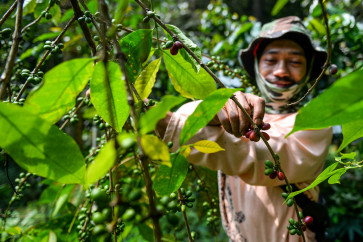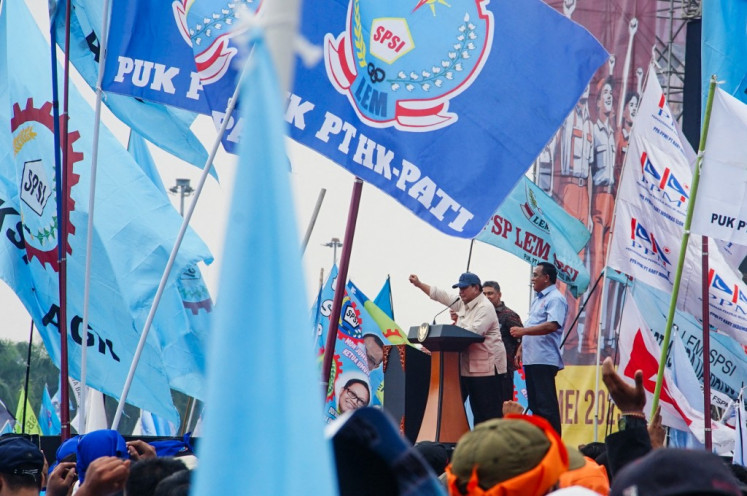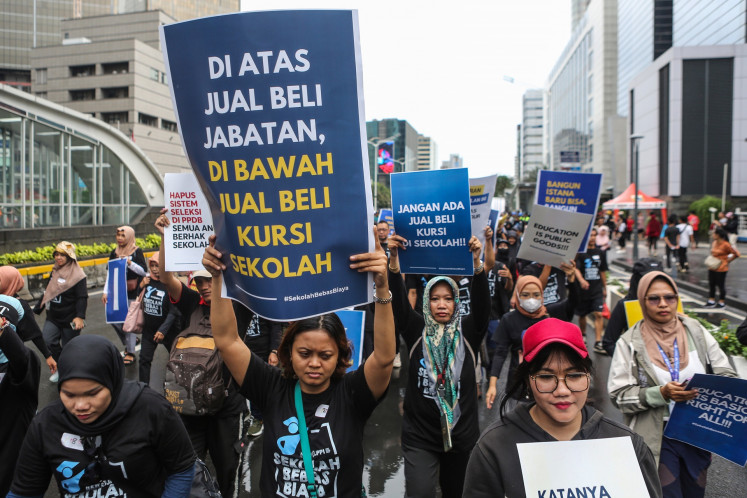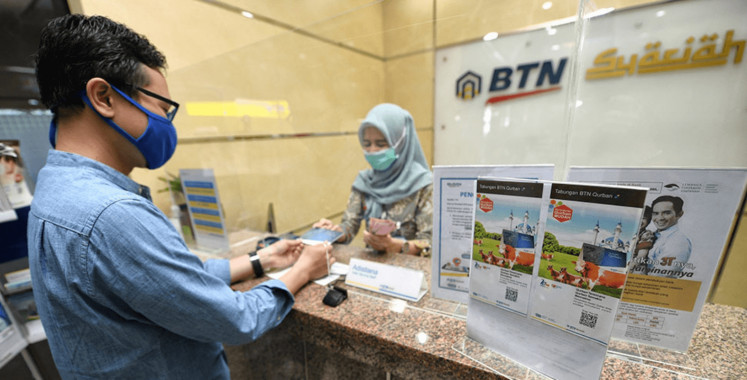RI anticipates Japan's formal complaint to WTO
As Japan becomes more serious about filing a complaint with the World Trade Organization (WTO) to protest Indonesiaâs mineral ore export ban, the government has stepped up its efforts to prepare for the legal dispute
Change text size
Gift Premium Articles
to Anyone

A
s Japan becomes more serious about filing a complaint with the World Trade Organization (WTO) to protest Indonesia's mineral ore export ban, the government has stepped up its efforts to prepare for the legal dispute.
A special team from the Trade Ministry was recently set up, tasked with preparing strategies and measures against Japan's move, which will likely come soon.
'As a member of the WTO, we will carry out our duties at the international level. We must be ready for every possibility,' said Gusmardi Bustami, who leads the special team.
Indonesia planned to continue implementing the export policy, as it believed the regulation did not breach any WTO rules, he added.
Indonesia, the largest supplier of certain key mineral commodities like nickel and bauxite, halted shipments in mid-January this year of unprocessed mineral ore to encourage investment in domestic refineries and smelters.
The policy was implemented after a five-year transition period to gives investors enough time to build local processing facilities. However, the policy failed to push miners to build smelters, which are expected to provide added value to the commodities.
Such added value is seen as necessary as Southeast Asia's largest economy aspires to grow its downstream industry, creating more jobs and slowing down the pace of excessive mining exploitation destroying the environment.
Japan, which buys more than 44 percent of its annual nickel ore from Indonesia, reportedly intends to challenge the export ban at the WTO, but the plan was only confirmed recently.
Japanese Foreign Minister Fumio Kishida formally raised the issue with Foreign Minister Marty Natalegawa at a meeting earlier this month in Hiroshima, Japan. Marty explained to his Japanese counterpart that the Indonesian government would retain the ban as mandated by the 2009 Mining Law, according to Trade Minister Muhammad Lutfi.
'What we want to focus on are our similarities in the matter [...] We must seek new cooperation, continue our relationship and allow investment [from Japan] to keep flowing,' Lutfi said.
Indonesia had repeatedly requested Japan to relocate its processing facilities here with a guarantee to supply the raw materials.
The unprocessed-ore export ban is not the first policy by Indonesia to affect the East Asian nation. In the past, Indonesia's move to halt log exports resulted in the disruption of raw materials to Japan's plywood industry.
Gusmardi said that once the case entered the WTO's dispute settlement body, it would be 'similar' but 'not the same' as China's rare earth export restriction, which was disputed by Japan along with the United States and the European Union.
In 2011, China imposed quotas on overseas shipment of rare earth elements (REEs), chemical elements used in the production of high-technology items from smartphones to missile-defense systems.
Beijing stated the restriction was meant to protect its depleted natural resources and curb pollution from mining activities. However, the petitioners argued that China, which supplies 95 percent of REEs to the world, provided an advantage to its domestic manufacturers to secure raw materials. The WTO ruled late last year that China had violated global trade rules.
University of Indonesia (UI) international law expert Hikmahanto Juwana said that from a legal viewpoint, Indonesia had strong leverage in the case. Therefore, it should defend its policy on mineral ore exports.
'The regulation is implemented across the board for both domestic and foreign business players. The government should not hesitate to keep it in place because it is not discriminating against any business players,' he said, citing legal action taken by Indonesia's Mineral Entrepreneurs Association (Apemindo) against the export ban as an example of how the policy also affected domestic industry players.
The WTO's dispute settlement process may be lengthy, according to Titik Anas, an economist at Padjadjaran University, and during that time Indonesia would still have the ban in place.
'By the time the WTO releases a ruling on the matter, smelters may well have been built here,' she said.









